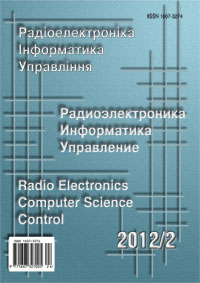METHODOLOGY OF RESEARCH OF FSM OPTIMIZATION METHODS FOR FPGA
DOI:
https://doi.org/10.15588/1607-3274-2012-2-24Keywords:
FPGA, finite state machine, synthesis, verification, EDA.Abstract
Methodology of research of known FSM optimization methods for modern FPGAs is proposed. Such methodology consists of different FSM generation, optimization, synthesis, verification stages and can be implemented using parallel and distributed systems. That approach can lead to the efficient results because of methodology nature. The general idea is to figure out the necessary tools and algorithms to prove, that optimized model of FSM has the same behavior as initial model. The structure of standard and specialized software tools for methodology implementation is demonstrated and analyzed. The results of methodology approbation using well-known FSM optimization method targeting Altera FPGAs are pointed out.Downloads
Published
How to Cite
Issue
Section
License
Copyright (c) 2014 A.A. Grytsenko, I. J. Zelenyova, S.Y. Siroshtan, E.R. Tatolov

This work is licensed under a Creative Commons Attribution-ShareAlike 4.0 International License.
Creative Commons Licensing Notifications in the Copyright Notices
The journal allows the authors to hold the copyright without restrictions and to retain publishing rights without restrictions.
The journal allows readers to read, download, copy, distribute, print, search, or link to the full texts of its articles.
The journal allows to reuse and remixing of its content, in accordance with a Creative Commons license СС BY -SA.
Authors who publish with this journal agree to the following terms:
-
Authors retain copyright and grant the journal right of first publication with the work simultaneously licensed under a Creative Commons Attribution License CC BY-SA that allows others to share the work with an acknowledgement of the work's authorship and initial publication in this journal.
-
Authors are able to enter into separate, additional contractual arrangements for the non-exclusive distribution of the journal's published version of the work (e.g., post it to an institutional repository or publish it in a book), with an acknowledgement of its initial publication in this journal.
-
Authors are permitted and encouraged to post their work online (e.g., in institutional repositories or on their website) as it can lead to productive exchanges, as well as earlier and greater citation of published work.






